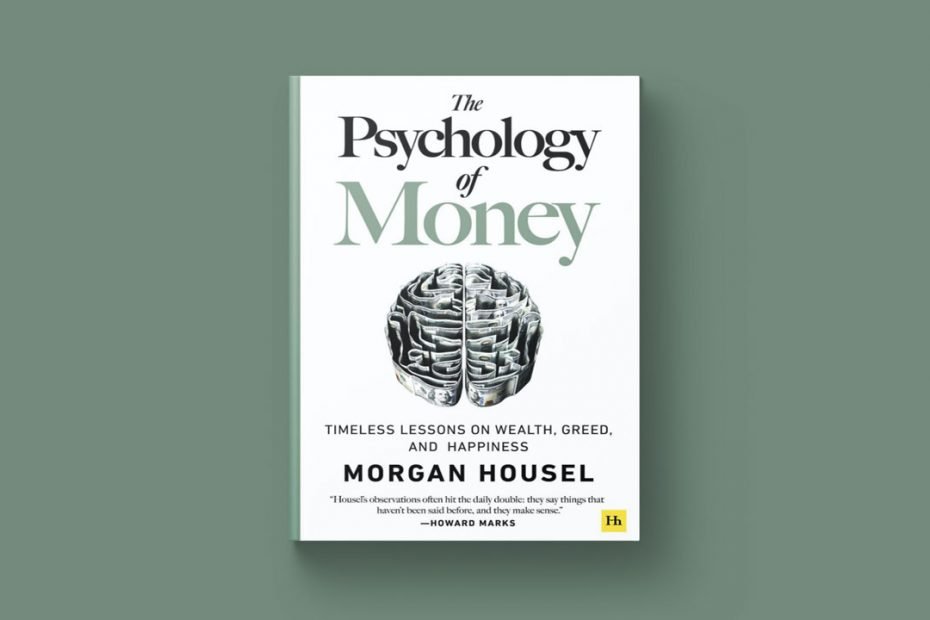
The Psychology of Money
The Psychology of Money: A Detail Overview
The Psychology of Money: In the new, rapid-paced world, monetary success isn’t always just about being profitable; it is about knowing the intricate courting between our minds and money. That is the essence of “The Psychology of Money,” a groundbreaking ebook using Morgan Housel that delves into the regularly overlooked psychological factors of monetary conduct.
What is “The Psychology of Money” about?
“The Psychology of money” goes beyond the conventional monetary advice of budgeting, saving, and investing. Rather, it specializes in the emotional and psychological elements that impact our financial decisions. Morgan Housel, a partner in the Collaborative Fund and a former columnist on the Motley Fool, uses his considerable revelatory insight and eager insights to unravel how our behavior and mindset impact our financial achievement.
The book is divided into 20 short memories or chapters, each addressing specific aspects of our dating with money. These tales cover subjects such as:
The position of good fortune and hazard in financial achievement.
The electricity of compounding and long-term questioning.
The significance of knowledge is your financial dreams and values.
The effect of worry, greed, and different feelings on our monetary choices.
Housel’s storytelling method makes complicated monetary principles reachable and engaging, allowing readers to reflect on their economic behaviors and beliefs.
Is “The Psychology of money” really worth reading?
Definitely. “The Psychology of Money” has acquired sizable approval for its particular technique in personal finance. Right here are some reasons why it’s worth adding to your studying listing:
1. Practical Insights:
The ebook offers realistic insights that apply to everyone, regardless of their economic scenario. Housel’s emphasis on the psychological components of money helps readers recognize why they make certain monetary decisions and how to make better ones.
2. Attractive Tales:
Housel’s use of real-life testimonies and ancient examples makes the ebook an exciting study. Those stories illustrate key monetary ideas and provide a broader perspective on money and Wealth.
3. Timeless expertise:
Unlike many monetary books focusing on modern-day developments or techniques, “The Psychology of Cash” affords timeless know-how that remains applicable regardless of marketplace situations. Its consciousness of human conduct and psychology guarantees that its classes are enduring.
4. Colossal enchantment:
Whether you’re a novice or an experienced investor, the ebook offers valuable takeaways. Its emphasis on the mental facet of money makes it relatable and insightful for readers from all walks of life.
What is the Lesson learned from “The Psychology of Cash”?
“The Psychology of cash” imparts numerous vital lessons that can rework how we think about and control our price range. Right here are a number of the most crucial takeaways:
1. The strength of Compounding:
One of the fundamental training in the ebook is on the energy of compounding. Housel emphasizes that time is a crucial issue in building Wealth. By beginning early and allowing investments to develop over time, even small amounts can result in significant Wealth because of the compounding impact.
2. The function of luck and threat:
Housel reminds readers that good fortune and risk play considerable roles in economic achievement. While hard work and clever decisions are vital, it is also essential to acknowledge the effect of luck and the inherent dangers of investing. This perspective encourages humility and caution in financial planning.
3. Expertise Private Values:
The book underscores the importance of aligning financial decisions with private values and desires. Everyone has distinct financial priorities, and understanding what truly matters to you may result in more satisfying financial choices.
4. They have an impact on emotions:
Housel delves into how feelings like worry, greed, and envy can pressure economic selections. Recognizing those emotions and learning to manage them can lead to higher economic consequences. For example, heading off impulsive decisions at some point during market fluctuations can save you luxurious mistakes.
5. Lengthy-term wondering:
Staying in power and long-term thinking are routine topics in the book. Housel advocates for a long-term attitude in investing and economic planning. This approach reduces the temptation to chase quick-time profits and allows the construction of sustainable Wealth over time.
6. Frugality and Contentment:
Another lesson from the book is the value of frugality and contentment. Housel suggests that dwelling under your means and finding happiness with what you’ve got can cause financial stability and peace of mind. It is now not just about gathering Wealth but also about finding delight in your economic journey.
7. Adaptability:
In the end, the ebook emphasizes the importance of adaptability. Economic markets and private situations can alternate rapidly, and being capable of adapting to those changes is crucial for long-term achievement. Flexibility in economics allows you to make plans efficiently and navigate uncertainties.
Conclusion
“The Psychology of cash,” with the aid of Morgan Housel, gives a refreshing and insightful angle on non-public finance. By exploring the mental factors of money, the book affords readers valuable classes that move past conventional financial advice. Whether you’re looking to improve your financial choice-making, apprehend the role of emotions in your monetary life, or gain a deeper appreciation for the complexities of cash, this ebook is an ought-to-read must-read.
Incorporating the concepts and classes from “The Psychology of Cash” into your economic adventure can result in a more considerate, knowledgeable, and, ultimately, a hit technique for handling your price range. So, is “The Psychology of Money” well worth studying? Truly. It can potentially exchange how you deal with cash and think about it.




Hello my loved one I want to say that this post is amazing great written and include almost all significant infos I would like to look extra posts like this
Thanks for your kind words.
You can contact me here for any enquiry https://bsbforensic.com/contact/